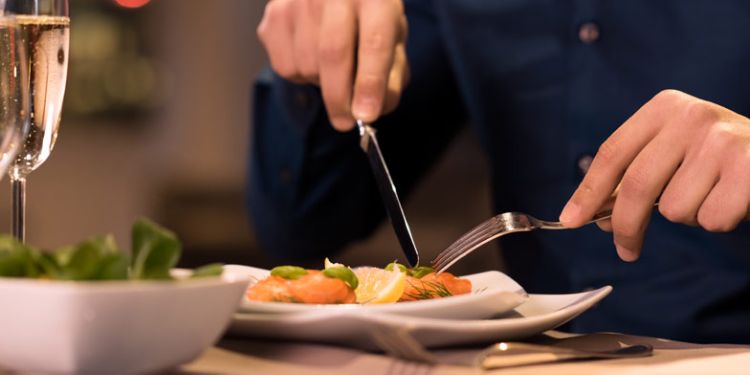Savoring the Experience: Restaurant Food and Eating Etiquette

In a world where dining out is not just about satiating hunger but also a social and cultural experience, understanding restaurant food and eating etiquette is essential. While delicious food is a crucial element, the way you conduct yourself in a restaurant can greatly enhance your dining pleasure and leave a positive impression.
In this blog, we’ll explore the finer points of restaurant food and eating etiquette, helping you navigate any dining establishment with confidence.
The Art of Making Reservations
Before you even set foot in a restaurant, it’s important to start with the basics: making a reservation. While not all restaurants require reservations, it’s a courteous gesture to call ahead, especially for fine dining establishments. This not only guarantees you a table but also helps the restaurant manage their bookings efficiently.
Dress the Part
Dressing appropriately for a restaurant is a sign of respect for the establishment and its staff. While casual dining may allow for more relaxed attire, upscale restaurants often have dress codes. It’s always a good idea to check the restaurant’s website or call ahead to inquire about their specific dress requirements.
Punctuality Matters
Arriving on time for your reservation is crucial. It shows respect for the restaurant’s schedule and allows for a smoother dining experience for both you and the staff. If you’re running late, a courtesy call to inform the restaurant is appreciated.
Seating Protocol
Upon arrival, you’ll be greeted by the host or hostess. Let them guide you to your table. It’s customary for the person who made the reservation to take the lead. If you’re dining as a group, wait for everyone to arrive before being seated.
The Menu and Ordering
When you’re seated, you’ll be presented with the menu. Take your time to peruse it, and if you have any questions or dietary restrictions, don’t hesitate to ask your server. It’s perfectly fine to seek recommendations from the staff; they’re there to help you make the best choices.
When ordering, be concise and clear. Avoid making last-minute changes to your order, as it can disrupt the kitchen’s workflow. If you’re ready to order, say so. If you need more time, politely inform your server.
Table Manners
Good table manners are a cornerstone of restaurant dining. Here are some key points to keep in mind:
- Napkin Etiquette: Unfold your napkin and place it on your lap. If you need to leave the table temporarily, place your napkin on your chair.
- Cutlery: Work your way from the outside in when using multiple utensils. Place used utensils on your plate rather than on the table.
- Chewing with Mouth Closed: Avoid talking with food in your mouth, and chew with your mouth closed.
- Silence Your Phone: Turn your phone to silent or vibrate mode and avoid taking calls at the table.
- Tasting Food: Taste your food before seasoning it with salt or pepper. It’s considered impolite to add seasoning before trying the dish.
Handling Problems
If you encounter an issue with your meal or service, it’s best to address it politely and discreetly. Notify your server, who will then inform the management. Making a scene or publicly complaining can create an uncomfortable atmosphere for everyone.
Tipping
In most countries, tipping is customary and often expected. The amount can vary, but 15-20% of the total bill is a common guideline. Be sure to check your bill, as some restaurants include a service charge.
Conclusion
Dining in a restaurant is not just about the food; it’s a holistic experience. Understanding and practicing restaurant food and eating etiquette enhances this experience, making it enjoyable for both you and the restaurant staff. The next time you dine out, remember these etiquette tips to savor every moment.
FAQs
1. Should I always make a reservation when dining at a restaurant?
It’s a good practice to make reservations, especially for upscale or busy restaurants. It ensures you have a table and helps the restaurant manage their bookings efficiently.
2. What should I do if I spill something on the table or my clothing?
Notify a server discreetly, and they will assist in cleaning it up. Don’t make a fuss or create a scene.
3. Is it okay to send food back if I don’t like it?
If there’s a legitimate issue with your food, such as it being undercooked or overcooked, it’s acceptable to ask for a replacement. However, sending food back simply because you don’t like the taste is discouraged.
4. How can I politely inquire about the ingredients in a dish if I have dietary restrictions or allergies?
You can ask your server politely if they can provide information about the ingredients or suggest alternative dishes that meet your dietary requirements.
5. Is it necessary to leave a tip in a restaurant, and how much is appropriate?
Tipping is customary in most restaurants. The standard tip is 15-20% of the total bill, but the exact amount can vary based on the quality of service and local customs.



